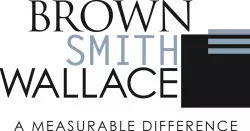Fraud is a threat for organizations of all sizes. Completely eliminating fraud risks is nearly impossible, but efforts can be made to minimize them. There is often one thing in common among instances of fraud –one individual had too much control. Whether it is a CEO, CFO or a branch manager of a small company, allowing that person to have too much control can lead to heightened risk exposure.
Often, these fraudsters start out as long-term, highly trusted employees. This elevated amount of trust and authority creates a high risk of fraud and creates an opportunity for the employee to commit fraud. In fact, 53 percent of fraudsters have been with their organization for more than 5 years, according to the Association of Certified Fraud Examiners' 2014 "Report to the Nations."
In almost all occurrences of fraud, opportunity is one of the three main factors present. Eliminating opportunity can go a long way toward preventing fraud. One of the easiest ways is to implement proper oversight and review of key financial transactions. Effective oversight is particularly beneficial since 77 percent of frauds originate in organizational departments, including accounting, operations, sales, executive/upper management, customer service, purchasing and finance.
Payroll susceptible to fraud
In a recent fraud investigation, an employee was continuing to pay temporary and former employees, but changing the direct deposit account number to her own. Once the payment had been made to her account, she would then switch the direct deposit account number back to that of the original employee. This occurred because of a lack of proper review. By simply implementing a review of each payroll report, you can help ensure this is not occurring at your company.
Limited resources create fraud opportunities
The not-for-profit world is not immune to fraudulent activity, particularly since limited resources often restrict the amount of attention given to back office personnel. The former finance manager of a Missouri charity was recently investigated for using the organization's credit card for personal expenditures. His scheme was possible because he had the authority to pay the credit card bill as well as make journal entries into the accounting system, with little oversight.
Regardless of the size of your organization, having multiple employees review bank statements and reconciliations is a must. This should also involve someone who is independent of the disbursement process. Otherwise, a controller or CFO who is writing checks and also reconciling bank statements can easily hide additional payments to themselves or others.
Vacation time helps uncover fraud
While implementing the proper controls is the best way to prevent fraud, a company should also have the right policies in place to detect fraud if it were to occur. Often fraud is uncovered because one person asked an extra question or was performing a duty of another while the fraudster was out on vacation. Mandatory week-long vacations require other employees to perform the work of an individual on vacation and can lead to uncovering a fraud sooner rather than later. This is a great policy to have in place, but you must remember that someone else needs to perform the work while the employee is out on vacation, or the fraud might not be uncovered.
Do you think your organization has all of the right controls in place? Learn more by visiting bswllc.com to request fraud risk assessment or a copy of the Brown Smith Wallace fraud infographic.
The content of this article is intended to provide a general guide to the subject matter. Specialist advice should be sought about your specific circumstances.

